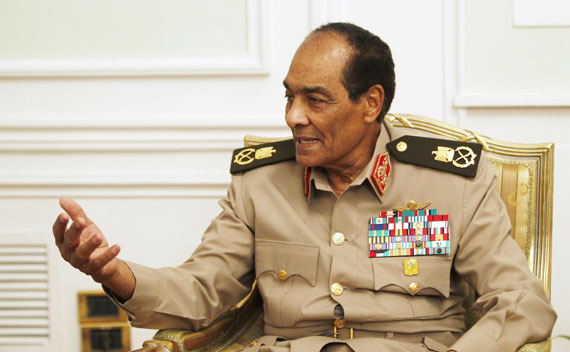Egypt: Five Things To Know Going Into The "Day of Persistence"
More on:

I am told that Cairo is increasingly tense in anticipation of Friday’s planned protests, which look to be quite big. Here are the five things that people should know going into “Persistence Friday.”
1. The Egyptian authorities are making a mistake if they don’t believe that the demonstrators represent the Egyptian people. In addition to the April 6th Youth Movement and the ‘We Are All Khalid Said’ Facebook group, the Muslim Brothers, the Salafists, the political parties, the Suez Canal Transport Workers, and average Masriyyeen have indicated that they will take part in demonstrations planned for Tahrir Square, Alexandria’s Corniche, Hurghada, Suez, Port Said, Mansoura, Sohag, and Sharkiyya. Even if the vast majority of Egyptians stay home during Friday’s protests—as they did during the January-February uprising—there are lots of Egyptians who are making demands for change. The Supreme Council of the Armed Forces is taking a grave risk by ignoring these folks in favor of some mythic silent majority. My guess is that large numbers of people who do not turn out to protest agree with many of the demands the demonstrators are making.
2. The Ministry of Interior and senior military command must understand by now that violence against protesters does the opposite of its intended effect. Rather than intimidating, it galvanizes people. The disdain for Egyptians that allowed the police to brutalize people with impunity is one of the things that got Hosni Mubarak into trouble. Why not let demonstrators protest peacefully? Why the provocations from the police and thugs? If protesters want to stay in Tahrir for days—as they did in February 1968 and the fall of 1972—so be it. Put down the tear gas, put away the water cannon, drop the metal truncheons and negotiate.
3. General Hosni Mubarak dealt his fellow officers a very bad hand. Sure, Egypt improved along a variety of socio-economic indicators during his three-decade tenure, but you just can’t beat people up in the process of making a country an attractive destination for foreign direct investment. People are going to rebel. It’s up to the SCAF to clean up Mubarak’s mess. To be sure, it is uncomfortable, especially since the officers have not been in politics for 43 years. All true, but the fact of the matter is, the military now “rules and governs.” How the officers handle this transitional period—so far clumsily—will determine Egypt’s political trajectory and their place in history. If the military is “with the revolution”, then the time for going halfsies—trying to salvage what it can from the Mubarak era while taking account of some demands from below—is over. The people in the streets are not buying what the SCAF is selling.
4. Presently, the military is losing the battle of legitimacies. This isn’t surprising. They are in essence defending a thoroughly discredited regime. Before the SCAF totally discredits itself, it has a golden opportunity to help establish the legitimacy of the uprising. This will mean some painful sacrifices—civilian control of the armed forces will be tough to get used to—but the officers will go down in history if they help midwife a new, more democratic Egypt. Egyptian children will proudly go to “Mushir Mohammed Hussein Tantawi Soliman High School” and “Lieutenant General Sami Enan Middle School” and learn what these fine officers did for the Egyptian people at a moment of crisis.
5. The tension in Egypt is directly related to calls for justice. The Egyptian courts are notoriously slow and the judiciary, despite a history of trying to guard its independence, suffers from 60 years of efforts to politicize judges. Nobody believes that the courts can render legitimate verdicts, but people want accountability. Now is not the time to resurrect the Revolutionary or People’s Tribunals of the 1950s. Rather, the best way to deal with the twin problems of “justice delayed is justice denied” and judges partial to former leadership is to establish a “Truth and Reconciliation Commission.” This will go a long way toward tamping down official violence and offering justice to the victims of the Mubarak era.
More on:
 Online Store
Online Store